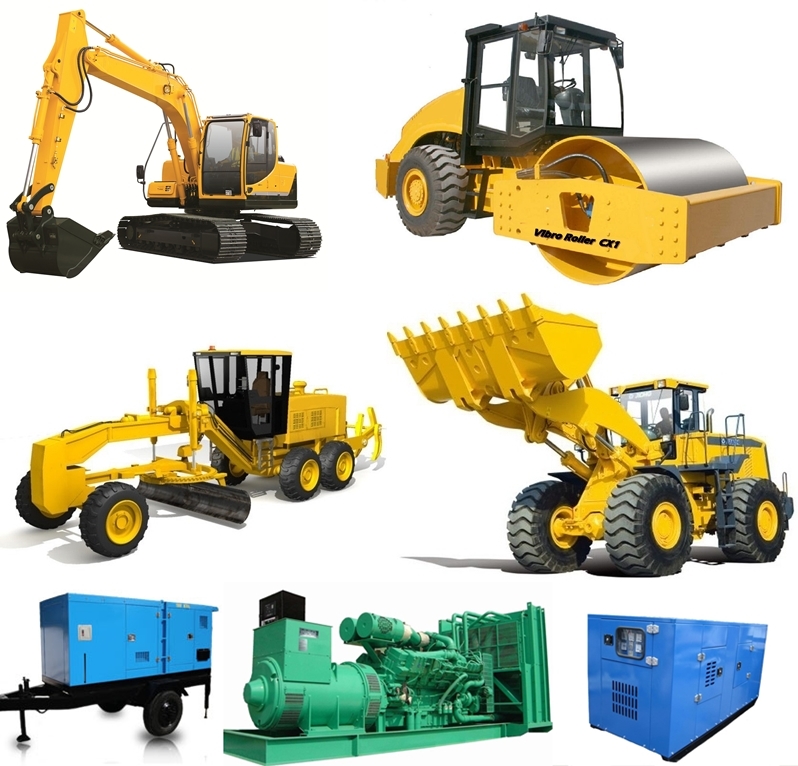Dozer Rental: Powerful Earthmoving Tools for Your Construction Demands
Maximize Your Budget Plan by Comprehending the Expenses Related To Building Devices Rentals
Recognizing the full extent of costs linked with construction devices rentals is crucial for optimizing your budget. What methods can be employed to successfully take care of these costs and make sure an extra efficient rental experience?
Overview of Rental Prices
When thinking about building equipment leasings, understanding the associated prices is vital for effective budgeting and job preparation. Rental costs can differ significantly based upon a number of elements, including tools type, period of rental, and area. The first rental charge commonly reflects the devices's market demand and its connected operational capabilities, affecting the overall expenditure.
In addition to the base rental price, supplementary prices might develop, such as transport charges, gas additional charges, and upkeep charges. It is necessary to account for these additional costs to precisely assess the overall price of renting tools. Moreover, the rental duration can impact prices; longer services may receive reduced prices, while temporary rentals may sustain greater everyday charges.

Failure of Rental Prices
A comprehensive understanding of rental rates is vital for professionals and job managers intending to optimize their budget plans. Rental prices for construction equipment usually contain a number of components, consisting of base prices, time-based fees, and use fees.
Base rates are the core charges connected with the rental of the devices, commonly determined by the kind and dimension of the equipment. These prices can differ significantly, influenced by elements such as equipment need, availability, and local market fads. Time-based charges, which might be daily, weekly, or monthly, serve to suit different project timelines and rental periods.
In addition, rental prices might consist of use charges, which are applicable when devices is utilized beyond a specified threshold, guaranteeing that the rental company can account for wear and tear. Seasonal need variations can likewise impact rental rates, with peak building and construction periods typically regulating higher rates.
Moreover, recognizing the rental company's plans concerning maintenance and insurance policy can supply further understanding into the total expense framework. By examining these components, service providers can make educated choices, making sure the selection of rental devices straightens with both job requirements and spending plan constraints.
Extra Costs to Think About
Recognizing the complexities of additional charges is critical for professionals to manage their total rental costs properly. Past the basic rental rates, various auxiliary charges can considerably affect the overall expense of equipment rental. These fees commonly consist of delivery and pickup costs, which can vary based upon range and logistics involved in carrying the equipment to and from the task site.
Additionally, some rental firms might impose gas surcharges if the devices is returned with less fuel than when rented. It is additionally necessary to understand prospective cleaning fees, particularly for specific devices that needs complete upkeep after use.

Thoroughly reviewing the rental agreement and you could try this out clarifying these added costs in advance can aid contractors stay clear of unexpected prices and make certain that budget plans remain undamaged throughout the job lifecycle.
Upkeep and Repair Service Expenses
Normal repair and maintenance expenditures are often forgotten aspects that can substantially influence the overall price of building equipment rentals. When renting out equipment, it is important to think about not only the rental charges yet likewise the possible prices connected with maintaining the machinery in ideal operating condition.
Numerous rental business include standard maintenance as part of the rental arrangement; however, a lot more extensive fixings or unforeseen malfunctions can cause additional expenses. It's vital to evaluate the rental agreement meticulously to understand what maintenance solutions are covered and what obligations drop on the tenant.
In addition, equipment that is not properly maintained can lead to ineffectiveness at work website, possibly creating hold-ups and enhancing task prices. To reduce these threats, it is suggested to conduct regular inspections and maintain open communication with the rental copyright concerning any type of problems that occur during use.
Insurance and Liability Costs
Insurance and liability costs are vital elements that can substantially affect the general cost of construction tools services (heavy equipment rental). These costs make certain that both the rental business and the client are safeguarded from potential financial losses developing from accidents, damage, or burglary during the rental period

In addition, clients need to know any kind of deductibles this page or exclusions in the insurance coverage, as these can impact potential out-of-pocket expenditures. Recognizing the terms of any kind of insurance policy coverage is important to avoid unexpected costs. Ultimately, budgeting for insurance policy and liability expenses can help guarantee a smoother rental experience and protect against monetary threats linked with building tasks.
Final Thought
In conclusion, an extensive understanding of the expenses connected with building and construction tools leasings is essential for effective budget management. Ultimately, notified decision-making relating to devices rentals contributes to the overall success of building and construction undertakings.
Rental prices can vary significantly based on several variables, consisting of devices type, duration of service, and place (construction equipment rentals). The rental duration can affect prices; longer leasings may qualify for discounted rates, while short-term services might sustain higher daily costs
By conducting comprehensive research and engaging with reputable rental companies, professionals can properly browse the complexities of rental rates, inevitably optimizing their financial resources.
Beyond the typical rental rates, various extra costs can substantially affect the complete cost of equipment leasing. Rental companies often supply responsibility insurance coverage that covers injuries to third parties or damage to residential or commercial property, while equipment damages insurance policy can cover the cost of repair work or replacement if the leased devices is damaged.